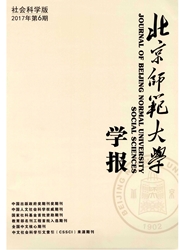

 中文摘要:
中文摘要:
对知识性质的追问导致了当代认识论中对知识定义的争论。争论的焦点在于如何理解知识与价值的关系问题。德性认识论对这个问题给出了一种解决方案,试图用道德的规范性说明知识的规范性,甚至试图用认识的客观性说明道德的客观性。然而,这种方案的主要困难在于没有看到知识作为一种规范性概念如何与人类的价值发生联系。中国传统哲学中的认识论可以为我们理解这个问题提供启发。“德性所知”、“格物致知”的认识论模式是从德性出发讨论认识问题。只有当我们把知识理解为由德性和心性所生发出来的对特殊事物的理解,我们才能理解知识所包含的真实内涵。只有在对人类灵魂的普遍理解中,我们才能真正把握知识的内在价值。如果必须放弃把知识理解为得到证明的真信念这个定义,我们更需要论证知识定义中除了得到证明和真理之外还应当包含的更多的内容。我们首先需要考虑的是价值问题在知识构成中的作用,其次还要考虑认识活动中的价值客观性问题。我们不再否定知识构成中的主观因素的影响,而是更多地关注这些主观因素在多少程度上会最终进入客观的领域。只有从这个角度出发,我们才能真正理解知识与价值之间的互动关系。
 英文摘要:
英文摘要:
The puzzle on the definition of knowledge is due to searching for the nature of knowledge, focusing on how to understand the relation between knowledge and value. Virtue epistemology provides a solution to this puzzle by explaining normality in knowledge in terms of morality, and even objectivity of morality in terms of knowledge. However, the problem in this solution is that it is not explanation about how knowledge as a concept of normality relates to human value. The epistemic ideas in traditional Chinese philosophy throw light on this puzzle, according to which the epistemic problems can be solved from the perspectives of virtue. We can understand the very implication of the concept of knowledge only when we see knowledge as our understanding of particular things from virtue and mind. And we can grasp the inner value of knowledge only when we have a general understanding of human minds. In case that we have to give up the definition of knowledge as justified true beliefs, we have to have more contents besides justification and truth. Thus we need to consider the role of value in the formation of knowledge and then the problem of objectivity of value in our cognition. We do not deny the role of the subject in the formation of knowledge, but focus more on that how the subject searches into the objective. Only in such way can we understand the interaction of knowledge and value.
 同期刊论文项目
同期刊论文项目
 同项目期刊论文
同项目期刊论文
 期刊信息
期刊信息
